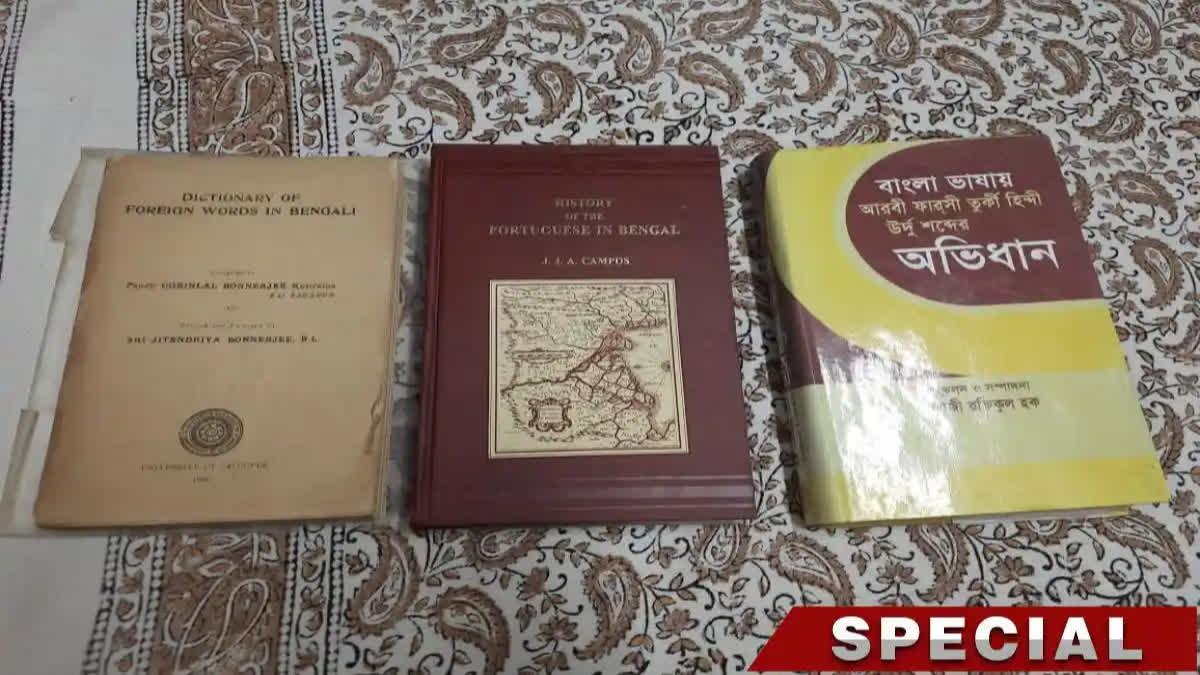Chandannagar (West Bengal): Various foreign words have enriched the vocabulary of the Bengali language. If one takes a look at the Bengali dictionary, it can be found that as many as 3,400 words in Bengali language have come from Arabic, Farsi and Turkish. More than 300 Portuguese words have made their way into the Bengali dictionary.
Ahead of the International Mother Language Day on February 21, this information presents the hospitable form of the traditional Bengali language to the world. Bengali composer, lyricist and singer Atul Prasad Sen's famous song echo the minds of every Bengali- 'Moder Gorob, Moder Asha/Aa-Mori Bangla Bhasha' (My pride, my hope/Oh My Bengali language)
From the time of Alexander's invasion of India to the period of the British, numerous words have been added to the Bengali dictionary increasing its usages. The picture of unity in diversity of the country is captured in Bengali language as well.
On the International Mother Language Day, not only the craze for the Bengali language, but the way the Bengali language has assimilated various foreign words over the ages, is being celebrated. Even after all these years, Bengalis use those foreign words in textbooks, literature, newspapers and daily life.
Persian words - Khun, Nalish, Ain, Peshkar, Qazi, Daroga, Arabic words - Court, Accused, Advocate, Ejlas, Case, Cross-examination, French words - cartridge, coupon, Turkish words - Urdi, Uzbuk, Daroga, Chaku, Cooli, Korma, Top, Portuguese words - church, key, warehouse, cupboard, bucket, bread, pineapple, Dutch words - iskaban, ruitan and ace
English words - chair, table. Chinese words - tea and sugar, Myanmar word - lungi (cloth) and Japanese word - rickshaw
have made their way into the Bengali dictionary.
Bengali literature afficionados still take pride in using foreign words with fluency. Thousands of foreign words have made their way in Bengali vocabulary without people's knowledge. Former journalist and writer, Debashis Mukherjee claimed that the language is enriched by such additions.
"Foreigners came to our country for colonisation at different times. From the pages of history, it is known that the Greeks, Turks and Mughals came to India during the reign of Alexander. After that, the Portuguese, Dutch, French and English came to our land. During their colonisation, various foreign words were silently introduced in Bengali language," he said.
According to Tagore, Bengali is a language of its own and not only derived from 'Sanskrit'. "Apart from Sanskrit equivalents, any word has been incorporated into Bengali either directly or through various foreign languages. There are also examples of Latin and Germanic languages within English," Mukherjee said.
He further said that the Portuguese came to Bandel in 1599 AD. "They ruled here for more than 200 years. The Dutch arrived at Chinsurah, Chandannagar, Srirampur, and the French set up camp here. Many words from their vocabularies have been incorporated into the Bengali language of this Bengal," he added.
